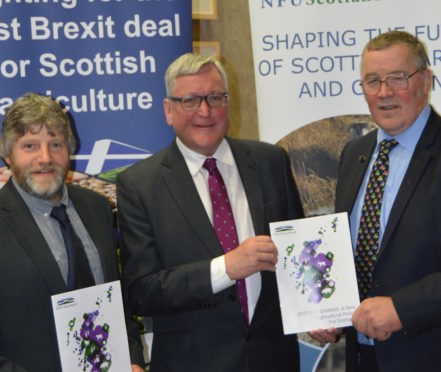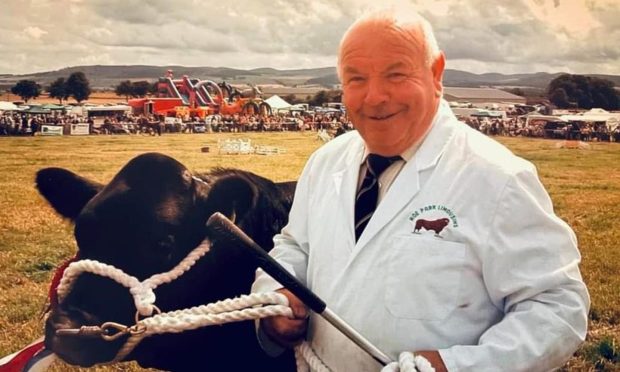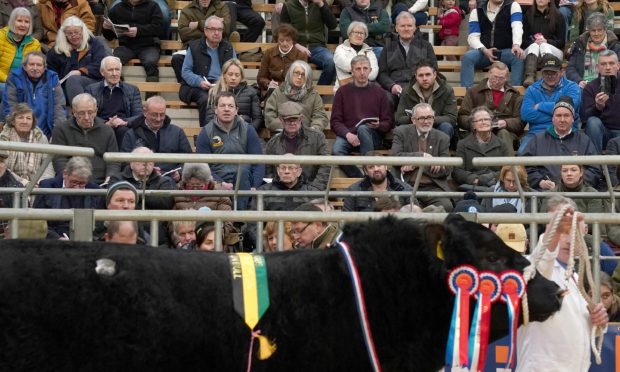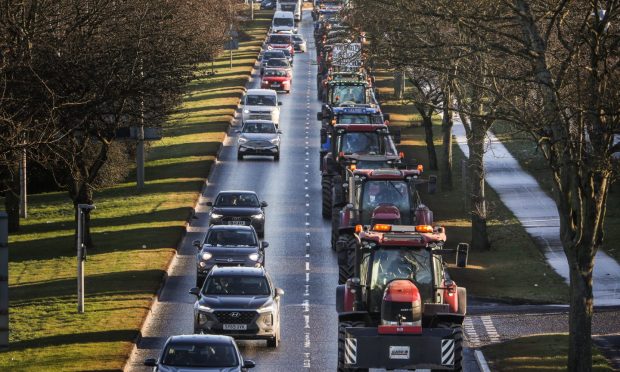Scotland’s farming leaders yesterday relished the prospect of finally shaking off the shackles of the Common Agricultural Policy (CAP) as they marked the 365-day countdown to Brexit with the launch of an alternative blueprint for agriculture.
With the clock ticking to the UK’s exit from the EU, NFU Scotland (NFUS) laid its cards on the table with a “Steps to change” document that overhauls 45 years of often derided European support measures and focuses instead on financial stability, productivity and the environment.
However, under their plans, the union acknowledged that British taxpayers would still be required to fund the industry to the same level of support as it currently receives until at least 2027, in order to give farmers enough time to adjust to new policies, emerging trade deals and improvements in the food and drink supply chain.
The union outlined a support structure which its leaders believed would make the industry more competitive, resilient and profitable, but NFUS director of policy, Jonnie Hall said: “Leaving the EU and the CAP is like turning around a supertanker, you can’t just apply the handbrake and do a donut.”
He said it was time to collapse the two pillars of the CAP and move away from area-based payments to build a “tiered” approach to farm support.
At its base there would be financial stability payments which would be
subject to cross-compliance requirements, together with some
non-competitive productivity and environmental measures which would be tailored to reflect varying farming systems and which would deliver productivity gains and environmental benefits “in the right places”.
Competitive productivity and environmental measures would make up a third tier of support and the union envisages these would be available to farmers and crofters who wanted to become more competitive or were aiming for even more positive
environmental outcomes.
The policy envisages the financial stability payments declining between 2022 and 2027 as farmers get rewarded for more production and environmental action.
Union president Andrew McCornick said past EU policy had “incentivised inertia” in the industry while a new approach to financial stability needed to be built on agricultural activity, rather than the simple occupation of land.
Copies of the policy document, “Steps to change: A new agricultural policy for Scotland”, were delivered to Rural Economy Secretary Fergus Ewing and other politicians at Holyrood and Westminster.
nnicolson@thecourier.co.uk










